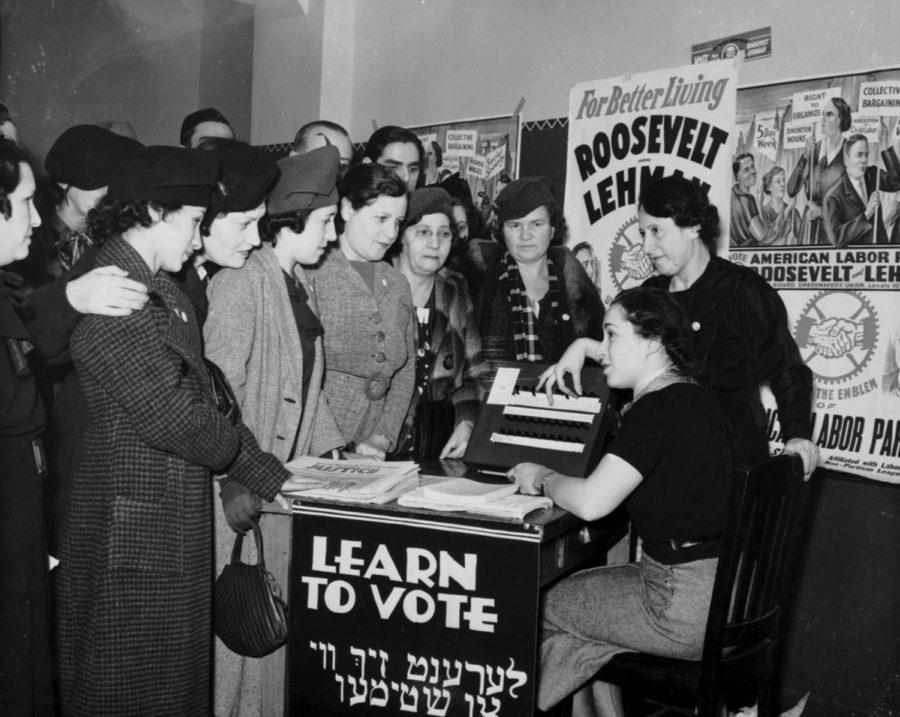Titus: Don’t forget American voting history
The American people who worked so hard before us, from signing the Constitution, to freeing slaves and allowing them to vote, to working for women’s suffrage — these acts were not done for nothing. We cannot waste hard work done by our ancestors.
November 4, 2014
Living in the United States means that we have rights that are different from everywhere else in the world. In this country, we have the opportunity to vote for who we want to represent us. Election day is a day where we get to express this right, a right that many people were born with. But this is not the case all over the world.
While the United States of America is not the only democracy that allows its citizens to elect its leaders, there are many countries, such as North Korea, that do not allow a voting process. Countries such as the U.S., Japan, Canada, Mexico, India and countries in the European Union have democracies that allow their constituents to vote for their leaders. Nearly all democracies and constitutional monarchies allow voting.
China, is a communistic country and only allows one political party to have political power and representation. Dictatorships allow a leader to have rule over a country, the military and the press without any vote from the people.
Though U.S. citizens were born with the right to vote, this does not mean that voting did not come at a price. When the country began, the only people who were allowed to vote were people who were considered legally “free” and male landowners. This means that the only voters were white men. African-American men were not allowed to vote because they were not considered free men when voting began, and women did not vote because they “belonged” to their husbands.
We have the constitutional right to be able to vote for who we want to represent us not only on a national level but also on a state and local level. Women and African-Americans had to fight for the right to vote and for the right to be treated like white men in polling places.
Carrie Chapman Catt, who gave her name to Catt Hall on Iowa State’s campus, not only attended Iowa State but also was a leader in the women’s suffrage movement. She worked hard to allow women the right to vote. Since 1972, women have become more likely to vote than men.
As an American and as a woman, I will not waste my right to vote.
The election that is taking place Nov. 4 is a local one that will mainly affect people in Iowa. Out-of-state students that want to participate in the election can register to vote and look up the polling places online by simply visiting mypollingplace.com.
Voting is too big of an issue to miss. In 2010, over a quarter of college students reported that they did not vote because they did not know where to register or they missed the deadline to register, according to campus voter project.
The same site showed that it is not that students are not interested in politics or that they do not care about who wins the election. Less than 13 percent of voters did not vote because they did not care. Students are the voices of the future and should be the people that have the most interest in voting.
The American people who worked so hard before us, from signing the Constitution, to freeing slaves and allowing them to vote, to working for women’s suffrage — these acts were not done for nothing. We cannot waste work done by our ancestors.
They have worked too hard to not vote. There is too much on the line to stay home.

















